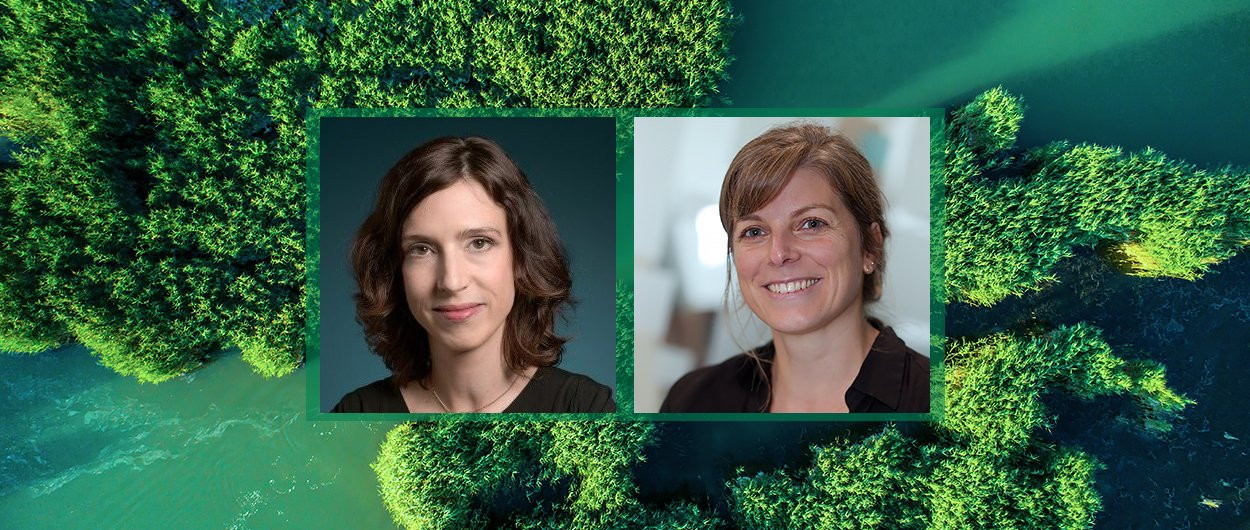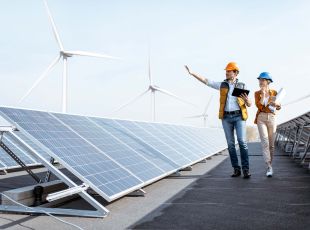What are your responsibilities within the Group CSR Department?
Virginie Leroux: Working within the Group CSR department, which is part of the larger Company Engagement Department, our team is dedicated to managing relationships with so-called “advocacy” or “activist” NGOs. In terms of their objectives and means of action, they are very different from NGOs specializing in humanitarian action, philanthropy or scientific research and with which the Group can set up partnerships. Indeed, advocacy NGOs immediately place themselves in a critical perspective, as their aim is to raise public awareness of the causes they defend, such as the fight against global warming or the defence of biodiversity, and to challenge companies on their practices when they deem them harmful.
So, when an NGO considers that a company has negative social or environmental impacts, it seeks to encourage financial institutions to put pressure on it by ending their financing and investments. More broadly, NGOs have recognised the crucial role of finance in accelerating economic transition and guiding technological choices. They therefore put pressure on banks to adopt ever more virtuous financing and investment policies.
What types of NGOs do you interact with?
Amélie Malafosse: The world of advocacy NGOs is a very rich ecosystem, with highly varied profiles. These may be local, national or international NGOs, coalition NGOs bringing together from a few dozen to several hundred NGOs around a given problem, a sector of activity or even around very specific themes such as bonds in the oil and gas sector. These NGOs can also be specialized by biome – such as tropical forests, by theme, by region, or else have a broad-based approach. Some NGOs are of limited size and means, while others have an international scope, such as WWF or Greenpeace, and can call on significant human and financial resources.
Some are highly politicised and highly critical of the dominant economic model, others are scientific and technical focused, and still others are legal NGOs specialising in litigation. It is important to understand that NGOs intervene in a network, the interplay of coalitions tending to leverage their actions. The impact of a particular controversy is therefore not necessarily correlated with the size of the NGO at its origin. Regardless, we accept dialogue and debate with everyone, whatever their profile, scale or ambition. It’s up to each NGO to define the type of relationship they want to have with us.
we accept dialogue and debate with ALL NGOs, whatever their profile, scale or ambition. It’s up to each NGO to define the type of relationship they want to have with us.
How do these advocacy NGOs act in concrete terms?
V. L.: Their actions are largely based on the need for banks to protect their reputation. They therefore use a whole range of tools such as communication and awareness-raising campaigns aimed at the general public along with advocacy vis-à-vis decision-makers and the criticism they convey to the media, not to mention the publication of reports on financial institutions (banks, asset managers, insurers) and their clients. They also play on emulation by publishing rankings which note the commitments and sectoral policies of financial institutions, highlight best practices and expose others that are behind.
Another less visible part of their activity is the dialogue they lead with companies and financial institutions that are open to it. This is our case: the BNP Paribas Dialogue with NGOs team leaves no request unanswered. In fact, NGOs contact us throughout the year to ask us questions about compliance with our commitments, our sector-specific policies, or to inquire about particular customers or transactions. Depending on the case, we first strive to fully understand the subject and its issues, then liaise closely with the bank’s various business lines before meeting the NGO or providing a written response. And we also sometimes contact them proactively to get a handle on a subject and benefit from their expertise, or to inform them of our new commitments.
How do you work with NGOs on the reports they publish?
A. M.: Much of our daily dialogue with advocacy NGOs concerns the preparation of their reports. Prior to publication, the most conscientious NGOs inform us of their focus areas and their draft report. When they use encrypted data, some NGOs provide us with the details of the transactions they have identified, so that we can at least consult them and report possible errors, which is also in their interest so as to underpin the seriousness of their analysis. If their report does not concern funding amounts, but a qualitative analysis of our sector-specific policies, the NGOs ask us to complete detailed questionnaires. Answering them and verifying the data is very time consuming, but it is a real investment that has proven itself over time: this gives us the opportunity to comment on the work of NGOs, ensure that they have not missed important information, supplement their analyses and ultimately make certain that BNP Paribas is fairly rated or evaluated.
NGOs are also keen for us to look at their output and provide any additional information, as they have limited human resources to devote to these reports. Most of the time we disagree with the methodologies used, but overall, debate and transparency are conducive to quality dialogue throughout the year.
Can you give us examples of topics you discuss with NGOs?
V. L.: We are constantly discussing with advocacy NGOs how to achieve the transition to a low-carbon economy. The demand for metals, for example, is huge because they are used in car batteries, electricity grids and wind farms. But this requires extraction and therefore mining, which has a cost in terms of biodiversity and harm to populations, and which presents risks of human rights violations in some mineral-rich countries. We debate the trade-offs that should be made, particularly around issues of acceptability.
Another interesting example concerns renewable energies: we all agree on the fact that their financing must be accelerated, and their deployment scaled up. But this raises many problems, particularly in terms of land use, the origin of the solar panels or their recyclability. So the question is, where and under what conditions should we finance these essential projects to combat global warming?


